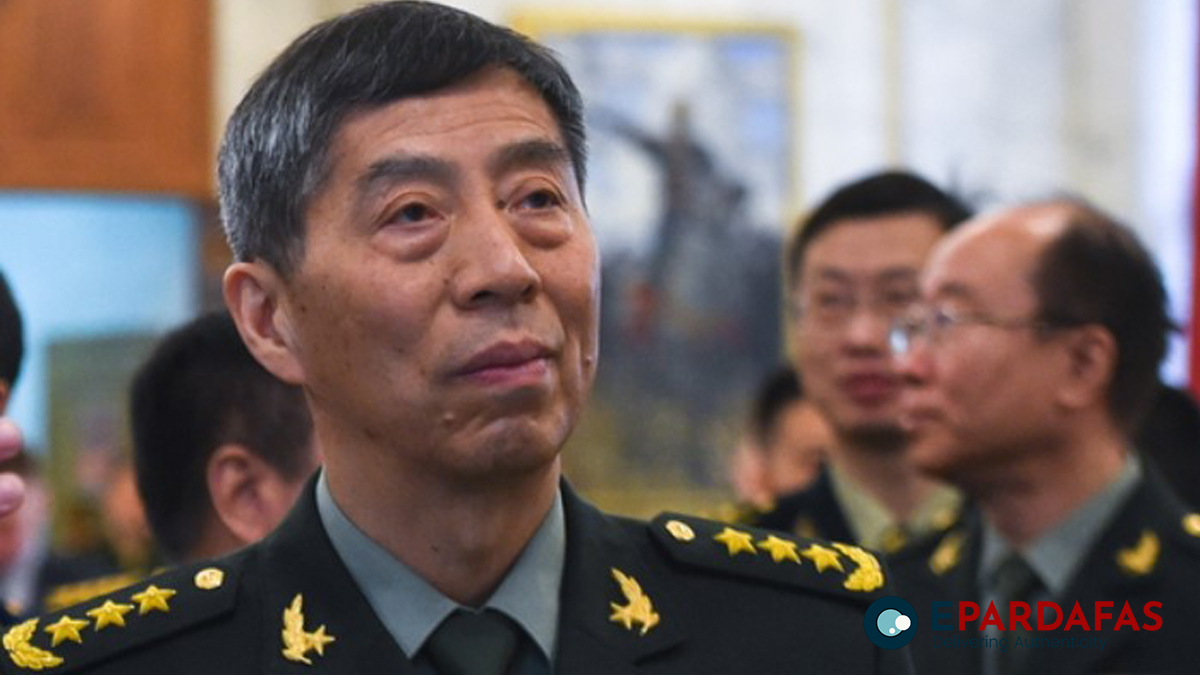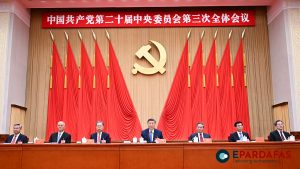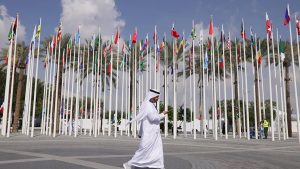“Chinese defense ministers are mainly in charge of military diplomacy, so Li’s removal won’t have much impact on the Chinese military,” Lin Ying-yu, a China military expert at Tamkang University in Taiwan, told VOA by phone.
While the absence of a new defense minister may have minimal impact on the operation of the Chinese military, Rorry Daniels, managing director of Asia Society Policy Institute, or ASPI, says the successive removal of Li and Qin, who were both hand-picked by Xi, may remind other Chinese officials that no one is safe from being purged in the current political system.
“It’s clear that there are some areas of real risk inside the Chinese system and I imagine this will lead to a sense that no one is sacred and everyone has a target on their back among other Chinese officials,” Daniels told VOA in a phone interview.
She said the chilling effect extending from Li and Qin’s removal might create obstacles for policymaking in China. “In this type of environment, it’s very difficult to make any policy if officials are always looking behind their backs at what might be coming for them,” she said.
Li’s removal comes days before China hosts the Beijing Xiangshan Forum, a multilateral dialogue where defense officials from different countries meet and discuss joint military strategy. U.S. defense officials confirmed that a delegation from the Pentagon was invited and will attend the forum.
Wu in Singapore said that since the U.S. will likely not send a top-level delegation to attend the forum, he thinks the absence of a new Chinese defense minister won’t have much impact on Beijing and Washington’s bilateral military engagement during the conference.
“China and the U.S. would already have some workarounds to continue the military-related dialogue and engagement,” he told VOA.
And since Li was sanctioned by the U.S. government, which hindered his engagement with his American counterpart Lloyd Austin during his time as the Chinese defense minister, Wilder from Georgetown University predicted that his removal might make military-to-military interaction between Beijing and Washington easier.
“I would expect that whomever Xi Jinping picks as the next defense minister will not have these kinds of sanctions on them,” he told VOA, adding that this is a positive development from the U.S. perspective.
As the U.S. and China pave the way for a potential meeting between Xi and U.S. President Joe Biden at the APEC leaders’ summit in San Francisco in November, Daniels from ASPI said Washington would hope that the meeting could generate some concrete outcomes for lower-level officials to follow up on.
“There’s a range of options that could come out of the meeting [between Xi and Biden,] and whether or not it will be successful depends partially on the yardstick by which we are measuring success,” she told VOA.
In her view, a successful outcome may be for both sides to have the room they need to create an agreement that is “durable” and able to be followed up on by officials and interested parties on both sides.
VOA Mandarin service reporter Adam Xu contributed to this report.














Comments